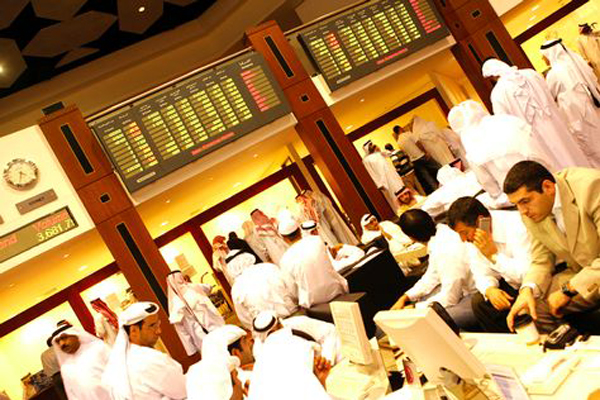Gulf stock markets were trading within a narrow range earlier this week with activity depressed because of the Muslim holy month of Ramadan.
Dubai’s main index edged down 0.5 per cent. Amlak, which has swung wildly since it resumed trading this month after a multi-year suspension due to debt restructuring, fell 2.0 per cent and was Dubai’s most heavily traded stock by a large margin.
Dubai Parks and Resorts slipped 1.6 per cent, though it remained up 76 per cent from early February levels.
Abu Dhabi’s market edged up 0.3 per cent solely because of First Gulf Bank, which gained 0.7 per cent.
Qatar’s market was almost flat although United Development gained 1.4 per cent to 24.28 riyals, testing technical resistance on its May peak of 24.35 riyals.
A 2 percent drop in global oil prices on Friday may further dampen Gulf sentiment, particularly Saudi Arabia, although hopes that more foreign institutions will soon be licensed to buy Riyadh-listed stocks directly could help to put a floor under prices there.
UN-sponsored talks in Geneva on a ceasefire between Yemen’s warring parties ended on Friday without a deal as Saudi-led warplanes staged further strikes on Houthi rebels. While the conflict has not been a big issue for the Saudi market, it has made some retail investors more cautious.


